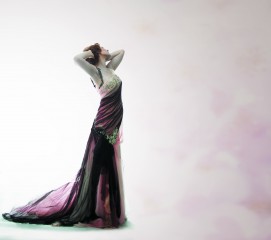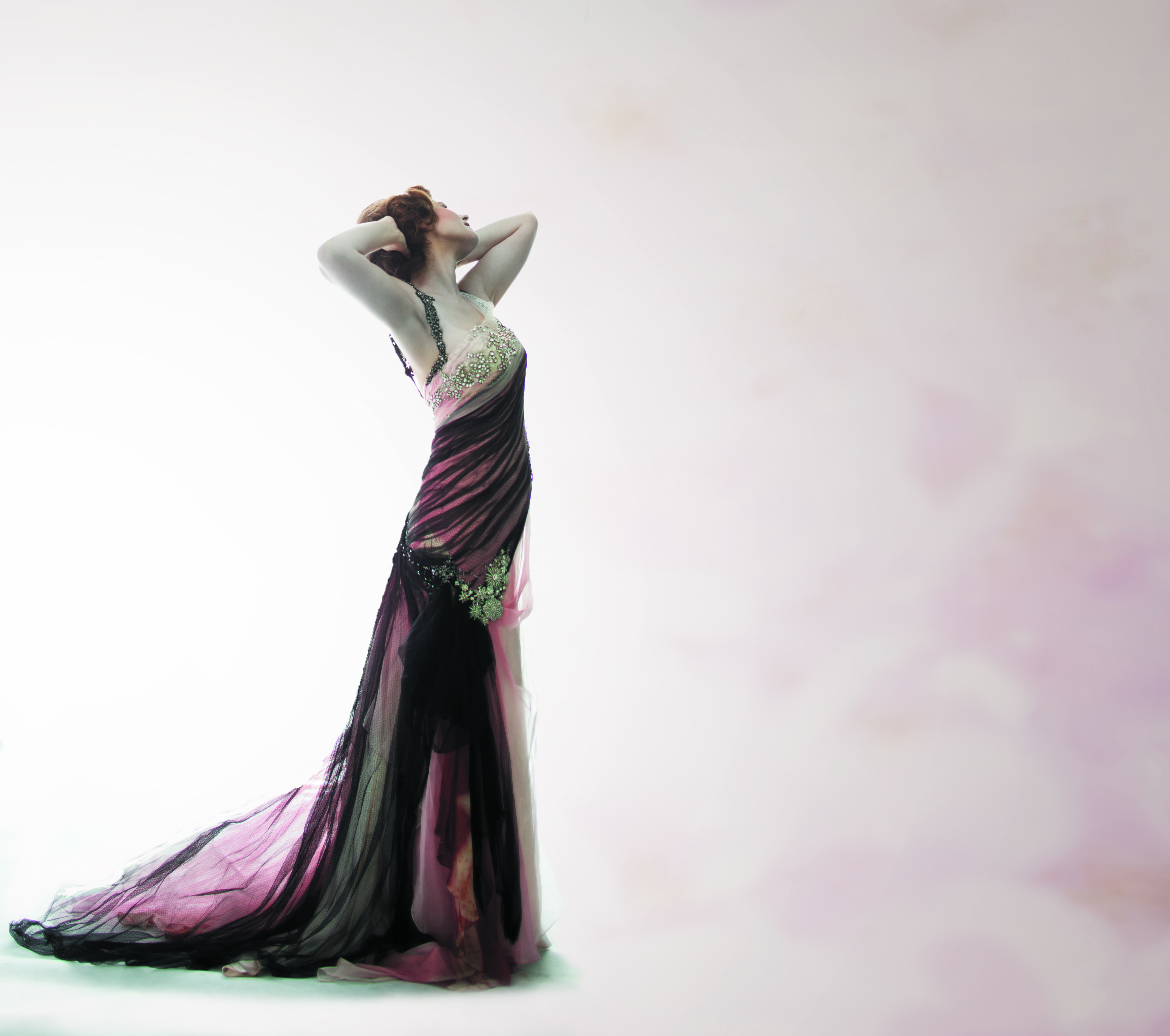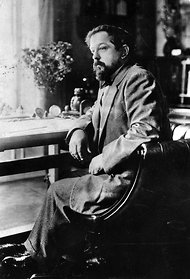Opera Review: Thaïs/ Opera Australia

Thaïs
Opera Australia
Sydney Town Hall
22 July 2017
Written by Deen Hamaker
Jules Massenet was an incredibly popular opera composer during his lifetime and churned out over 30 operas from La grand’tante in 1867 to his final operas which premiered after his death in 1912. His professional life spanned the late 19th and 20th centuries, an operatic scene where other composers took music to new frontiers. Whereas Wagner and Verdi explored new forms of operatic expression in the late 19th century and Debussy and Richard Strauss expanded these forms in the early 20th century, Massenet continued to compose beautiful works in the tradition of the French Grand Opera that he had mastered in his student days.
While major musical shifts were astonishing audiences across Europe, Massenet continued to focus on what worked for his audiences. This is one of the reasons that apart from his two major works, Manon and Werther, Massenet’s operas have largely fallen out of the repertoire and we seldom hear them today. While not as rare as perhaps 30 years ago, Massenet’s operas are still woefully underperformed considering the beauty of his music.
Australian audiences have had very little chance to hear Massenet on our stages so it was a joy that Opera Australia selected Massenet’s orientalist masterpiece Thaïs to present in concert in the Centennial Hall of the Sydney Town Hall while the Joan Sutherland Theatre is being renovated. It has been several decades since OA has presented a performance in the Town Hall and I fervently hope we do not have to wait this long until OA presents performances here again. This hall is a spectacular location for operatic concerts and has a gorgeous acoustic which compensates amply for the facilities that are lacking in comparison with the Opera House.
The Orientalist movement of late 19th century Europe permeated all the arts from literature, painting and sculpture to design and music, celebrating the exotic and unfamiliar worlds of the mystic Orient. Late 19th century Europe was a world of strict public morals and hidden sexual politics. The highly erotic world of the Orientalists bore little relation to reality and was more a reflection of the contemporary society of the artists. Using mythologised, far-away settings meant that the sexual subtext could be conveyed indirectly with exotica. Thaïs has a lot to say to us today about the world of 19th century France – more so than anything it has to say about 4th century Alexandria where it is set.
Thaïs is perfumed with its sensual evocation of Hellenic Egypt. From the decadent indulgent banquets of Pagan Alexandria to the monastic communities of the hot deserts of the interior, Massenet composed a series of lush musical images that conjure this remote exotic world. Calling for vast extravagant sets, costumes and extras, Thaïs debuted at the Opéra in Paris in 1894. The Opéra was the most lavish theatre in the world at the time and any new works composed for it required big choral scenes, dance sequences and a certain grandeur. Thaïs is an excellent example of the late French Grand Opera style with its sumptuous banquet scene and exotic Egyptian setting. Massenet composed some of the most evocative, descriptive music of any of his contemporaries and here in Thaïs he outdid himself, as in the beginning of Act I Scene II, a rich musical setting of the harbour of Alexandria and the hustle and bustle of the Hellenic city. Whilst it can be difficult to conjure up the world of an opera when it is performed in concert, with Thaïs, the music tells it all – the oppressive heat of the desert, the glittering blue of the Mediterranean and the perfumed night in Thaïs’ palace.
The scenario of the opera itself is a tussle between two titanic characters, Thaïs, the beautiful cultured courtesan and Athanaël the rigid ascetic of the desert. Like Turandot, another work set in the mystical East, the theme of the story is the subjection of an independent woman, though Thaïs is no icy princess. She is a cultured, sexually liberated woman whom the men of Alexandria bid for. They willingly pay fortunes for her to favour them with her gifts for a week at a time. All this plays on the mind of the zealous Athanaël who believes that by saving her soul and bringing her to God he can save Alexandria from the depravity to which it has sunk. Beyond this, he vainly sees Thaïs’ conversion as a victory to be attained with scant regard for her well-being. Ultimately, he gives into his own infatuation and rushes to see Thaïs at the convent to which he has led her. But she is already dying, having expatiated her sins and now delirious with visions of heaven opening for her.
Playing the gorgeous courtesan was Nicole Car, the young Australian soprano who has gone from strength to strength across Europe and Australia in recent seasons. From her spectacular performances as Mimi and Marguerite for OA, she has gone on to sing Micaëla in Carmen and Tatyana in Yevgeny Onegin at the Royal Opera, Covent Garden and Tatyana in Paris and Berlin. Now she has returned to Australia as a voluptuous Thaïs. In this debut role, she sang spectacularly. From the moment of her first entrance she had the audience in the palm of her hand. Her sumptuous tone, shimmering pianissimo and velvet like texture made her performance one of the most spectacular that Sydney has heard from her. She sang the famous Mirror Aria of Act II beautifully with brimming passion, perfectly evoking Thaïs’ turmoil. Her progression of roles from this triumph will be keenly observed and anticipated with pleasure.
Canadian baritone Etienne Dupuis sang the role of Athanaël. He has an undoubtedly beautiful voice and he sang gorgeously through the demanding role, doing a wonderful job of evoking the fiery determination of the desert monk in the face of temptation. He was heartbreaking in the end as he realised the hubris of his actions. While his voice was on the lighter side for this repertoire, his idiomatic use of his native French carried every nuance of his arias. These performances marked his Australian debut. With a series of praised performances across Europe, we can hope that we get to hear Mr Dupuis here again soon.
The remaining cast were largely excellent. Richard Anderson as Palémon, the leader of the desert ascetics, continues to deliver excellent performances and goes from strength to strength in the roles he portrays. Sian Pendry was wonderful as Albine, the Mother Superior. It is unfortunate the extent of the role didn’t give her more to do. Anna-Louise Cole and Anna Yun were wonderful in the thankless roles of Thaïs’ fellow courtesans. Simon Kim as the patrician Nicias was adequate without being remarkable.
Guillaume Tourniaire has already conducted some spectacular performances for OA, among them the recent seasons of Yevgeny Onegin and Faust, both creating a successful collaboration with Nicole Car. Tourniaire’s sensitivity to style and heartfelt passion demonstrated that this opera really is a masterpiece. He revelled in the highly colourful evocative score, coaxing every bit of French elegance from the performers and the score. Without sets and costumes, it was Tourniaire’s stellar leadership that created the heady, sensual world of Hellenic Egypt. While the score has some unquestionably beautiful music it can have its longueurs. Tourniaire’s conducting kept the audience enraptured throughout the evening. The Opera Australia Chorus sang wonderfully as both the monks and nuns of the desert and the outraged citizens of the city.
The Opera Australia Orchestra, freed from the pit of the Joan Sutherland Theatre and the intrusive amplification that the company has resorted to in some productions, played gorgeously. Rarely have I heard this music played so beautifully by an orchestra that is always excellent, but which here exceeded all expectations. It was a nuanced performance with clear elegant texture from every section.
It is rare in opera that its most famous excerpt is an instrumental piece and particular mention needs to be given to Orchestra Leader, Jun Yi Ma who brought the same sensuality and shimmering texture to his exquisite rendition of the famous Meditation as Ms Car brought to her Mirror Aria just before. The roar of appreciation he received from the audience was well deserved.
The orchestra with its sophisticated playing was a tour de force that bodes well for the upcoming concert performances of Parsifal with Jonas Kaufmann and for futures seasons that will hopefully include more concert presentations and performances in the Town Hall.
All in all, a spectacular night.
Deen Hamaker for SoundsLikeSydney©
Deen Hamaker is a passionate opera aficionado and commentator. Introduced to theatre, opera and classical music at a very young age, he has acted in and directed several theatre productions, both in Australia and overseas. Deen lived in Japan for several years and studied the performing arts of Asia. Deen’s particular passion is opera, particularly the Russian, French and Modern repertoire. Deen was a contributing author for “Great, Grand and Famous Opera Houses”, 2012. Fluent in Japanese, Deen holds a Bachelor of Arts in Japanese from Griffith University and currently lives in Sydney.




